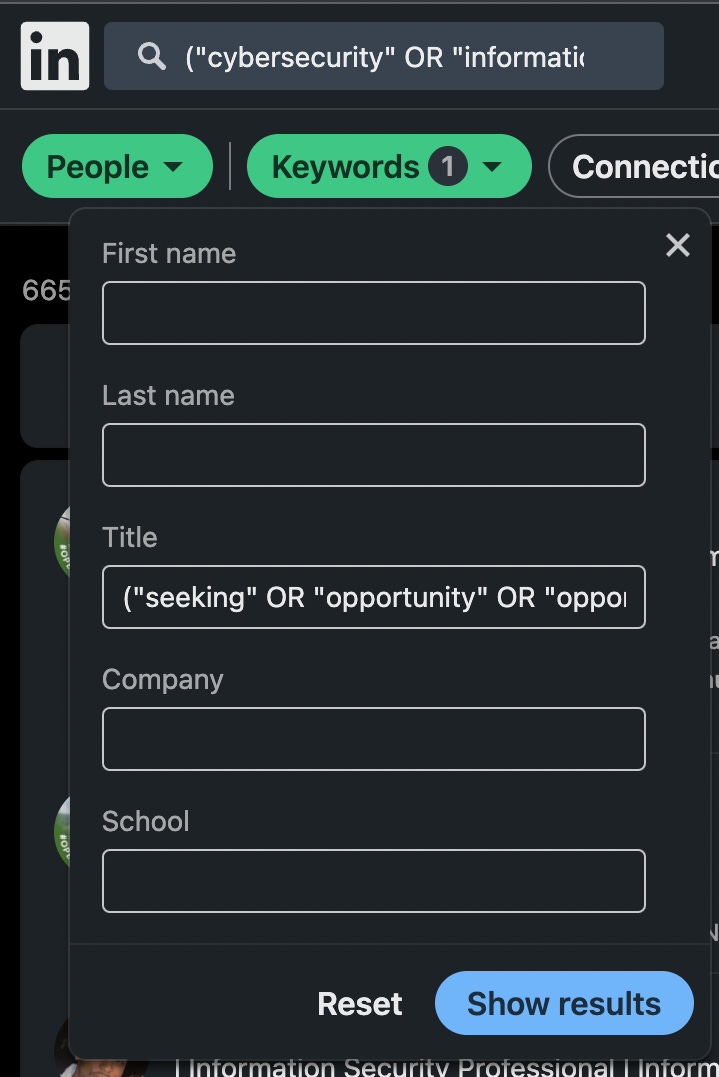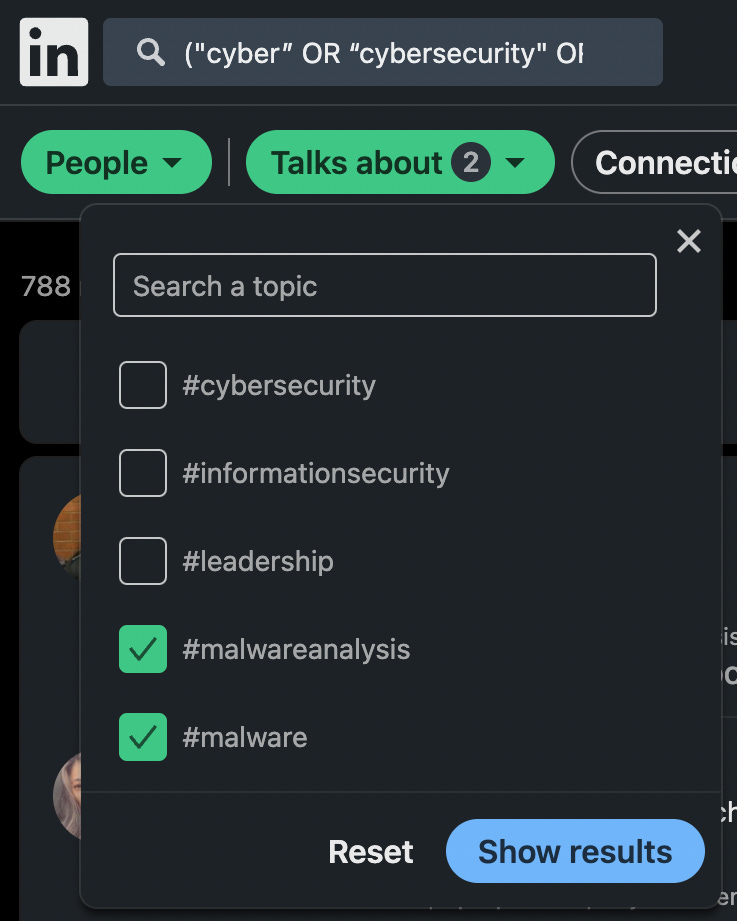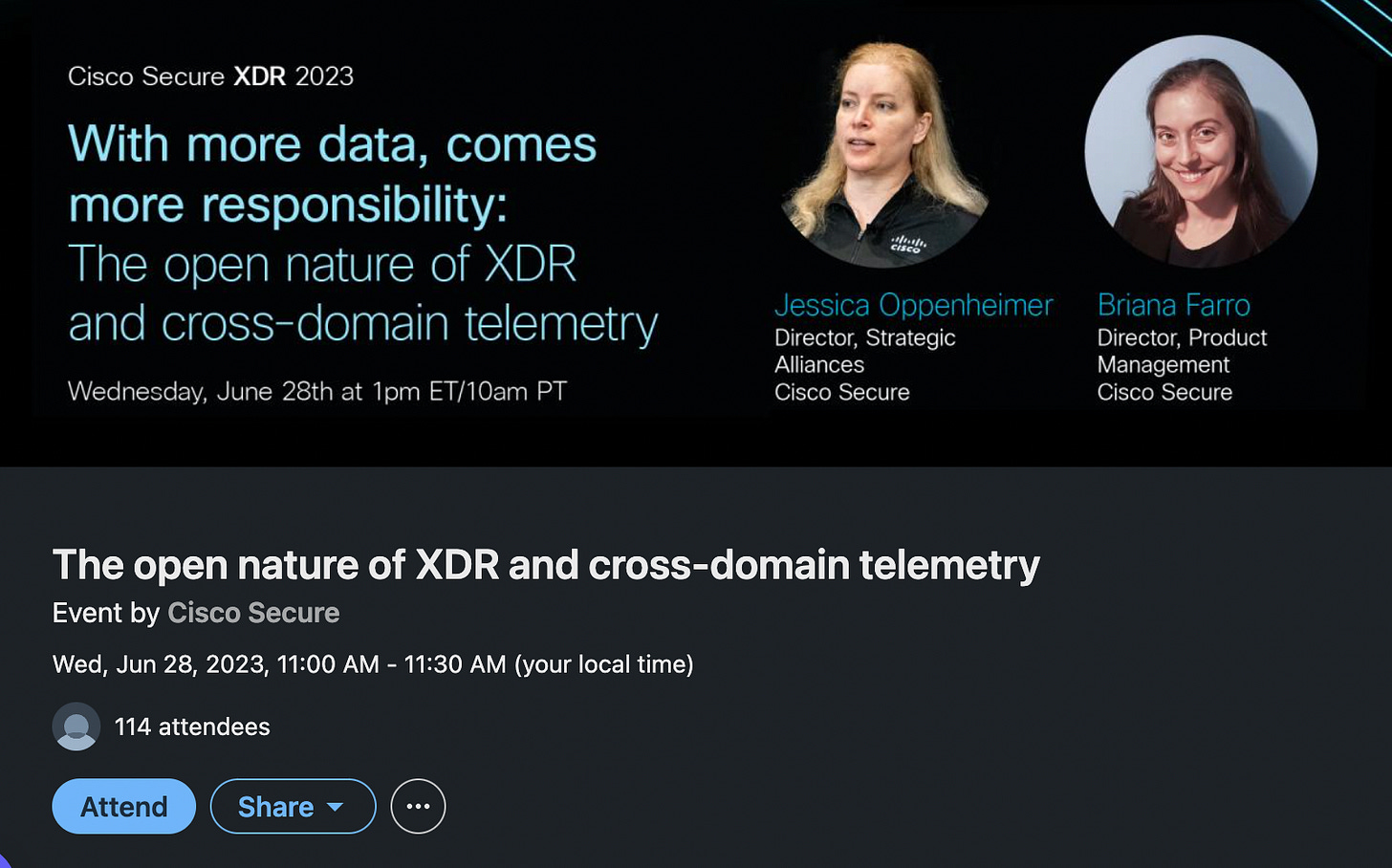We hear this advice on repeat …
“Your network is your net worth!”
“It matters who you know!”
“Referrals help you win!”
Yes, the more friends you have, the more opportunity you have. It’s true.
Making friends doesn’t come naturally to a lot of people, especially introverts. “Networking” sounds easy and simple in theory but a lot of folks struggle on how to approach it.
If you’re shy or just nervous to meet new people, I don’t blame you. It’s scary to put yourself out there. Most people wonder how to even start among all the conferences, social media channels, forums, groups, and discord chats. It’s overwhelming!
This week’s blog is dedicated to anyone struggling with how to network. Today, I’ll show you some simple steps to start building genuine relationships that can bring massive value to your job search and your career.
Let’s jump in!
Find people on the same journey as you.
There is power in numbers. You don’t have to search for a job by yourself. Finding someone who’s also actively job searching can be a huge advantage. First, it’s less intimidating reaching out to someone in the same boat as you. There’s an automatic camaraderie because you share the same goal (landing your first cyber job or transitioning to a new one).
Second, you can instantly double your network by making friends with one person. Their connections become your connections. If you build up a good enough relationship, they can provide introductions, share opportunities, and refer you when they land a job themselves.
Third, it’s good for your mental health to talk with someone that is going through the same thing as you. Setting up communication channels or jumping on regular calls can boost your mood and help you get through the struggles of a job search.
Here’s how you can find these people using LinkedIn.
Type in (“cyber” OR “information security”) into the search bar
Filter by “people”
Select “All filters” and type in this boolean string in the “Title” section: ("seeking" OR "opportunity" OR "opportunities" OR "open to work")
Then filter by location (start with your city, then expand to surrounding areas, and then country)
Reach out to 10 people from this list and introduce yourself. Offer to help support them with their search and continue engaging with them. It’s as easy as that!
Find people who share the same interests.
Finding people who share common ground is a great way to feel comfortable in the infosec community. Whether you’re into gaming, jiu jitsu, or politics, you can find people who work in cyber and who enjoy doing the same things as you. It’s like finding micro communities within a community. Here’s how you can do this on LinkedIn.
Do a key word search similar to this: "(“cyber” OR “cybersecurity” OR “information security”) ['“insert hobby key word”]
Examples:
("cyber” OR “cybersecurity" OR “information security”) "jiu jitsu"
750 results!
("cyber” OR “cybersecurity" OR “information security”) (“gamer” OR “video games”)
3800 results!
("cyber” OR “cybersecurity" OR “information security”) "cyclist”
460 results!
Filter by your location first and then expand to nearby areas, then country.
Find 10-20 people you can reach out to and introduce yourself. Keep in touch with anyone that responds.
Engage with content on LinkedIn and Twitter.
You don’t have to message people directly to meet people! The absolute best way I’ve made relationships online is through commenting on other people’s posts. This allows you to engage with the author directly or those that also left a comments. Here’s an easy way to get started with this:
Let’s say you’re interested in Malware. You would want to find people that work in that field or that talk about that topic.
Go onto LinkedIn and do a search similar to this:
"malware" ("cyber” OR “cybersecurity" OR “information security”)
Go to All filters
Go to “Talks about”
Include “#malware” and “#malwareanalysis”
Find 10-20 people and follow their account so you don’t miss the content they post
Start engaging with them whenever they post something. It’s that simple!
Give it enough time and you’ll start becoming a familiar face among malware-focus professionals.
Join groups and online communities (e.g., LinkedIn, Slack, Discord, Stack Exchange, etc.)
Don’t spread yourself too thin by trying to be everywhere at once. Pick 1-2 platforms or 1-2 groups that you can focus on. If you’re consistent with one specific community, you’ll build more quality relationships. Whatever group you decide to join, make sure it’s focused on your field of interest and make sure the culture fits you. You may have to experiment until you find the right one. Make sure to engage in conversations and discussions within the group. Offer insights, ask questions, and look for opportunities to collaborate or support events, projects, etc.
(FWIW, I personally love the TCM Security and Simply Cyber Discord Servers).
Make a local friend who can attend events with you.
Attending local and regional cybersecurity events can be the best way to network because you meet people in person. Nothing compares to in-person interaction! However, these type of events can be stress-inducing for introverts. I’m a pretty outgoing person and I still get nervous putting myself out there at conferences.
To overcome this, try and make a local friend who can attend events with you. This not only motivates you to get out there, it makes the experience more comfortable.
Using LinkedIn, do a search for local cybersecurity professionals. Reach out and introduce yourself at first, ask good questions, and keep in touch with them. Eventually if you can build enough rapport/friendship, this person can be your travel buddy to events!
Here’s some advice on this:
Attend a webinar and connect with attendees.
Did you know that attendees of a LinkedIn Event can view a complete list of attendees from the Event page? This is a great, non-threatening way to introduce yourself to new people. Try to attend a few events every month and after each one, reach out to 5-10 people. “Hey [name], [provide a brief intro of yourself]. I noticed you also attended the [event name]. I really enjoyed it and thought [topic] was really interesting. What were your thoughts?” - this is a simple format you could use.
In the example screenshot, notice that there are already 114 people registered to attend. That’s a good group of people you can reach out to!
Go onto LinkedIn and type in any subject you’re interested in (e.g., “SIEM”, “malware”, “incident response”) and filter by events. It’s that easy!
Conclusion
Remember, networking is a long-term game. You won’t make friends with someone overnight. It will take time. Along the way you’ll get frustrated, hit road blocks, and people will ignore you. Accept these things as part of the process and don’t get discouraged. You got this!




